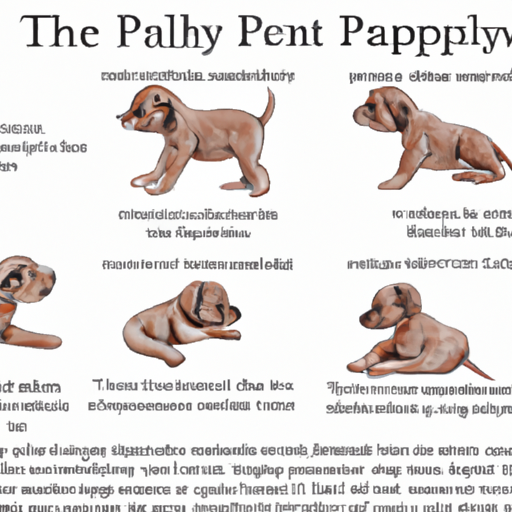Understanding the Process of Teething in Dogs
You are probably familiar with the teething process in humans, especially if you’ve been around infants. However, did you know that puppies go through a similar process? Just like human babies, puppies are not born with their teeth. Their baby teeth, also known as deciduous teeth, start to come in when they are about 2 to 4 weeks old.
Teething is an important phase in a puppy’s life. It’s when they start to explore the world around them using their mouth, it’s a sign that they are growing, and it’s a period that needs your understanding and care as a caregiver.
How Long Does the Teething Process Last?
The teething process in puppies typically starts around 2 to 4 weeks of age, when their baby teeth start to erupt. This phase lasts until about 6 months of age, when all their adult teeth are fully in.
| Age | Teething Phase |
|---|---|
| 2-4 weeks | Baby teeth start to come in |
| 3-4 months | Baby teeth begin to fall out |
| 6-7 months | All adult teeth are in |
Note: This is a general timeline and can vary slightly depending on the breed and individual dog.
Tips for Easing the Teething Process
-
Provide Appropriate Chew Toys: During this period, puppies have a strong urge to chew. This is because chewing helps alleviate the discomfort they feel as their teeth come in. However, not every chew toy is safe or effective.
- Look for toys specifically designed for teething puppies.
- Avoid toys that are too hard as they can damage your puppy’s teeth.
- Check the toys regularly for wear and tear and replace them as necessary to avoid choking hazards.
-
Use Cold Items: Just as a cold teething ring can soothe a baby’s sore gums, cold items can help relieve a puppy’s teething discomfort.
- Try soaking a washcloth in water, wringing it out, and then freezing it. The cold will help numb the gums and the texture will help soothe them.
-
Maintain a Regular Feeding Schedule: Sticking to a regular feeding schedule can help prevent your puppy from developing bad chewing habits.
Potential Problems During the Teething Process
While teething is a natural process, it can sometimes lead to problems. Keep an eye out for these potential issues:
– Excessive drooling
– Lack of appetite
– Aggressive chewing
– Red, swollen, or bleeding gums
– Fever
If you notice any of these signs, it’s a good idea to take your puppy to the vet. They can check to make sure everything is progressing normally and provide advice on how to manage any problems.
Frequently Asked Questions (FAQs)
Q: What do I do if my puppy is chewing on everything?
A: Provide appropriate chew toys and try to redirect their attention whenever you catch them chewing on something they shouldn’t be.
Q: Can teething cause diarrhea in puppies?
A: While some dogs may experience mild digestive issues during teething, severe or prolonged diarrhea is not normal and should be addressed by a vet.
Q: How can I tell if my puppy is done teething?
A: Generally, by the time your puppy is about 6-7 months old, all their adult teeth should be in. If you’re not sure, a vet can confirm.
Remember, as a caregiver, your understanding and patience during this phase can make a world of difference to your teething puppy.



